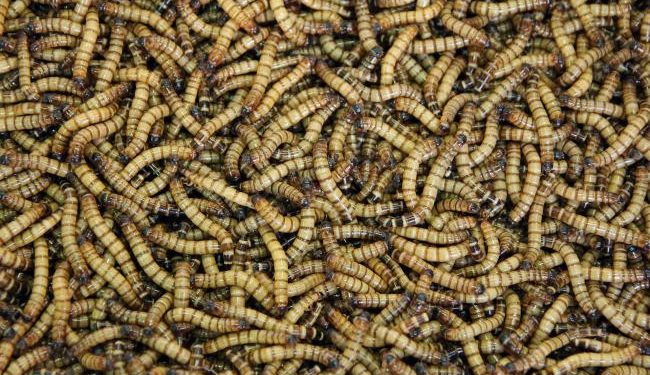
As insect farming is growing in Europe, the UK government is considering the authorisation of insects for pig and poultry feed and commissioned Ricardo Sustainability, Clean Energy and Environment to perform a Life Cycle Assessment to determine the sustainability of insect protein as a feed source.
Insect protein increases the environmental impact of animal farming
The Ricardo study found insect protein has a climate change impact as high as 13.5 times the impact of soy, and 4.2 times the impact of fishmeal, mostly linked to its high-energy demand and its use of high-quality grains and vegetables to feed the insects. Even insects reared on food waste, a common argument put forward to justify the rearing of insects, would still have a bigger environmental impact than soybean and fishmeal.
When compared with conventional alternatives, insect protein necessitates more resources and more land and fails to deliver on sustainability benefits. For insects fed with traditional feed, a common practice in the industry, soy is preferable in 15 out of 16 impact categories considered by the study.
The study does not identify a clear path for insect protein to move towards a better sustainability profile, and some of the benefits put forward by insect farming supporters (notably the use of insect co-product as fertilisers) are deemed unrealistic or under-researched. The study concludes that insects are “not the current solution to decarbonising the animal feed industry.”
Insect farming: a six-legged problem
As a feed industry, insect farming does not only worsen the already high impact of animal agriculture, it also supports intensive farming practices that have severe detrimental consequences for animal welfare and human health.
A six-legged problem, insect farming also has the potential to harm food security, animal welfare, and ecosystems through the release of farmed insects in the environment. The Ricardo study itself calls for further research to be conducted into “understanding wider environmental impacts”, notably biodiversity loss.
It is urgent that policymakers, in the UK and in the European Union, support the transition towards sustainable food systems and ditch false solutions such as insect farming.









Discussion about this post